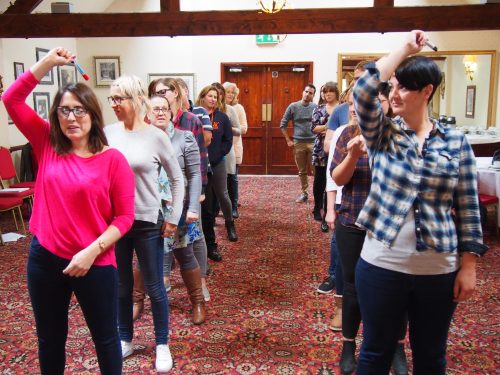
Crossfields Level 3 Diploma in Social Pedagogy content is grouped in 7 inter-related units.
(Unit 1) Key theories and principles in social pedagogy
This unit will explore key theories and principles of social pedagogy. A brief overview of its history, the key thinkers who have shaped its European/UK development and social pedagogy’s relationship with social justice will enable you to understand social pedagogy today and how it can be applied across different fields of practice and across the life course.
(Unit 2) Learning perspectives on human development
This unit will introduce you to key learning theories and principles around holistic learning and human development. Using experiential learning activities, this unit will enable you to develop an understanding of how relationships and well-being affect learning processes, and vice versa, and how they can create learning opportunities in everyday practice.
(Unit 3) Communication and understanding lifeworlds
In this unit you will explore how verbal and non-verbal communication can impact on our relationships, information sharing and perception of each other as individuals and professionals. It will introduce you to key communication theories, link these to practice and emphasise the importance of giving and receiving authentic feedback.
(Unit 4) Building meaningful relationships
This unit will focus on establishing, maintaining and promoting meaningful relationships with people and within inter-professional practice. Drawing on care ethics, you will explore various theories and principles, such as reciprocity, authenticity, empathy, trust and equality, that seek to include individuals in wider society and ensure that their diversity is recognised as valuable.
(Unit 5) Creativity in working with individuals, groups, and communities
The unit will introduce you to the power of creativity when working with individuals, groups and communities. It takes a broad definition of creativity, which similarly to multiple intelligences considers every individual as having unique creative potential.
(Unit 6) Safer practice from a social pedagogical perspective
Through this unit you will gain social pedagogical perspectives on safer practice. You will explore how you can best balance safe practice with the need to develop risk competence in other people – their ability to understand, assess and manage risks themselves. You will also learn about the role of children’s and human rights in framing safer practice by considering in particular the right to the best interest of the child/adult, their right to be involved in decisions that affect them, their right not to be discriminated against and their right to survival and development.
(Unit 7) Observation and reflective practice within a social pedagogical culture
In this unit you will explore the role of reflection within social pedagogy, highlighting the importance of making observations that avoid interpretations or judgments. By engaging with different reflection and appreciative inquiry methods, you will become familiar with practical and thorough reflective processes that are solution-oriented and thus enable you to develop your practice further.
*Please note that the qualification is not affiliated with UCL. For further information on this qualification, please read Jacaranda and ThemPra’s Terms and Conditions.
